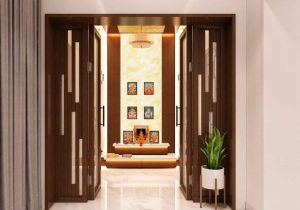
Creating a sacred space in your own home is a time-honoured subculture that now not most effective enhances the classy enchantment of your living space however also brings a feel of peace and religious tranquility.
One of the vital factors of a harmonious domestic is the proper placement of a mandir, or prayer room. In this blog, we’ll explore the significance of the right mandir course in a domestic, the suitable placement for idols, the importance of orientation at some stage in prayer, and other Vastu recommendations to create a spiritually uplifting surroundings.
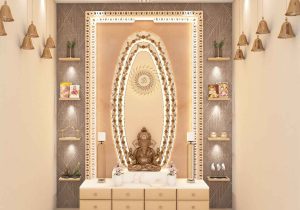
According to the Vastu Shastra, the northeast path is taken into consideration auspicious for putting a mandir. It is concept that by means of aligning with beneficial power, this path raises spiritual vibrations. When setting up your mandir, take into account positioning it in a way that the face of the mandir points inside the northeast course.
The placement of idols within the mandir is important for retaining a harmonious atmosphere. Each deity has its own importance, and Vastu shows unique guidelines for exceptional deities. Understanding and following those pointers can contribute to a balanced and fantastic strength waft within your house.
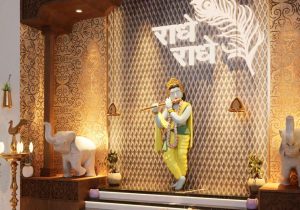
To maximise the drift of superb power, it is advocated that the doors and windows of the puja unit or mandir open inside the north or east path. This lets in for the unhindered entry of natural mild and promotes a feel of openness and purity inside the sacred space.
A northeast orientation is generally preferred for the temple, and other suitable locations include the east and west sides of the house. Avoid placing it on the right side of the temple, as it is believed to disturb the balance of energy in the house.
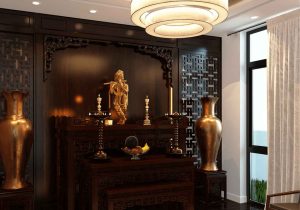
If a diya or lamp is lit in a temple, it is preferable to place it in the southeast direction. This is believed to attract positive energy and create a warm, soothing glow that enhances the spiritual atmosphere in the space.
When praying, it is recommended to face north or east. This is believed to align the person with the earth’s magnetic field and make prayer more effective.
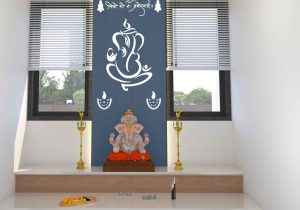
Your temple colours play an important role in creating a peaceful atmosphere. Choose muted or light colours like white, cream or pastel shades. These colours not only contribute to beauty but also symbolise purity and peace.
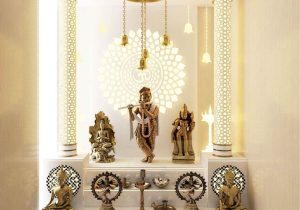
Aside from setting specific guidelines, consider additional architectural tips that will enhance the positive energy of your puja room. Keep the space clean and uncluttered, use natural materials for construction and decor, and add elements such as fresh flowers and incense to purify the air and scent the atmosphere
Bonito Designs, a renowned interior design firm, emphasises the importance of blending aesthetic and architectural principles. Adding their expertise can help you create a temple that not only meets architectural guidelines but also reflects your own style and preferences.
From elegant architectural design to intricate details, Bonito Designs can help transform your mandir into a visually stunning and spiritually uplifting space.
Incorporating architectural principles into the installation of your home temple can greatly contribute to the overall harmony and positive energy of your residence. Everything is important in your home from the correct temple directions to the placement of the idol, the orientation during prayers and the use of calming colours.
By following these guidelines and considering the expertise of design firm Bonito Designs, you can create a mandir that not only conforms to architectural principles but also serves as a peaceful retreat for spiritual solace in the comfort of your home.